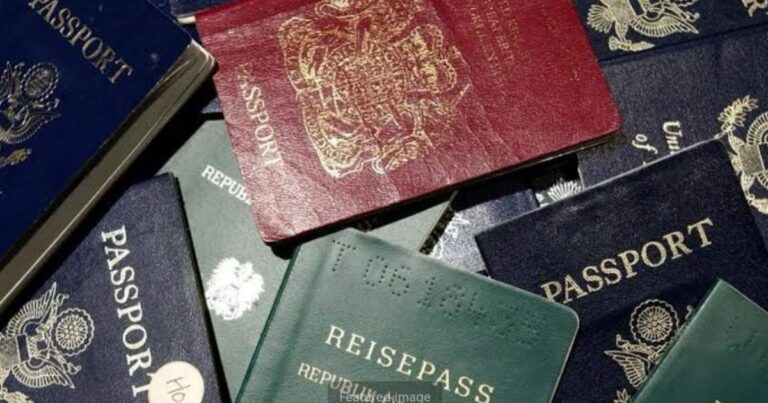In a remarkable uptick in global migration through investment, 66 Nigerians obtained citizenship in Antigua and Barbuda between January and June 2024, contributing a combined $6.6 million to the Caribbean nation’s National Development Fund (NDF), according to newly released data from the Citizenship-by-Investment Unit (CIU).
The update, delivered to Antigua’s Parliament on October 15, 2024, outlines a record-breaking 739 approved applications across all nationalities—more than double the volume recorded during the same period in 2023.
Nigeria ranked third globally, behind China and the United States, and stood out as the top African contributor to Antigua’s Citizenship-by-Investment Programme (CIP) via the NDF. Other African countries, including South Africa, Egypt, Kenya, and Ghana, followed with minimal single-digit entries.
The programme, which offers foreign nationals a second passport in exchange for economic contributions, has seen growing popularity amid global geopolitical uncertainties and an announced increase in investment thresholds. In August 2024, the Antiguan government raised the minimum NDF contribution to $150,000 for a family of four, up from the previous $100,000. This change prompted a rush of applications ahead of the deadline, as investors scrambled to secure the lower rate.
Wealth advisors confirmed that many applicants received pre-approval letters, effectively locking in the old contribution amount, which partly explains the six-month surge.
The NDF remained the most attractive route, accounting for 614 applications and nearly $63 million in new funds. Meanwhile, real estate investments and contributions to the University of the West Indies (UWI) drew a smaller share of applicants.
According to the CIU, Nigerian participants were primarily business owners and high-level professionals seeking greater global mobility. Antigua’s passport offers visa-free access to over 150 destinations, including the Schengen Area and the United Kingdom, making it a desirable choice for upwardly mobile Africans.
Minister of Tourism, Investment, and Economic Development, Charles Fernandez, confirmed that proceeds from the programme are being channeled into public infrastructure, including hurricane-resilient housing, a national dialysis facility, and debt relief efforts.
A breakdown of the figures shows that over 90% of Nigerian applicants chose the NDF option, prioritizing direct support for national development over longer-term investments in real estate or education-linked contributions.
Since its inception in October 2013, Antigua & Barbuda’s CIP has offered four investment pathways:
-
A $150,000 donation to the National Development Fund
-
A $200,000 real estate purchase in approved developments
-
A $1.5 million direct business investment (or $400,000 in a $5 million joint venture)
-
A $150,000 contribution to the University of the West Indies Fund, which includes a year’s tuition for a dependent
Applicants must undergo internationally outsourced due diligence, maintain a clean criminal record, and reside in Antigua for at least five days within five years. Since 2017, the programme has adopted biometric-chip passports and submits to annual audits to ensure compliance with EU and OECD transparency standards.

